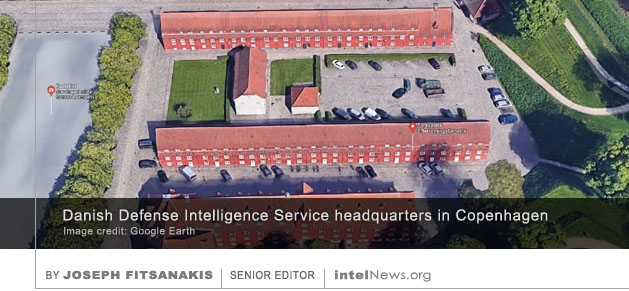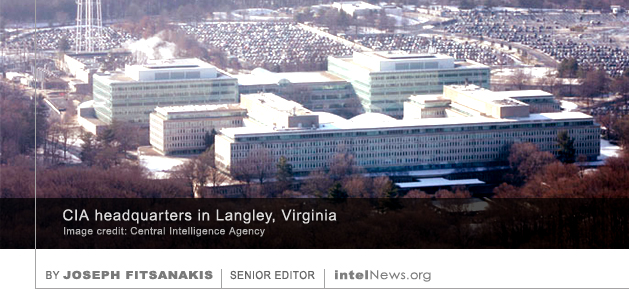Report by whistleblower alleges up to 10,000 Russian casualties in Ukraine (updated)
March 8, 2022 2 Comments
 A REPORT BY AN anonymous Russian intelligence analyst alleges that the Russian forces in Ukraine could have suffered as many as 10,000 casualties, and claims that the Kremlin has lost contact with a number of divisions. The claims are included in a 2,000-word document published online by Vladimir Osechkin, a Russian anti-corruption activist and vocal critic of the Kremlin, who has been living in France since 2015. In the past, Osechkin has collaborated with the investigative website Bellingcat.
A REPORT BY AN anonymous Russian intelligence analyst alleges that the Russian forces in Ukraine could have suffered as many as 10,000 casualties, and claims that the Kremlin has lost contact with a number of divisions. The claims are included in a 2,000-word document published online by Vladimir Osechkin, a Russian anti-corruption activist and vocal critic of the Kremlin, who has been living in France since 2015. In the past, Osechkin has collaborated with the investigative website Bellingcat.
According to British newspaper The Times, which first reported on the claims made by Osechkin, the document originates from an anonymous intelligence analyst in Russia’s Federal Security Service (FSB). The FSB has inherited the domestic functions of the Soviet-era KGB and today operates as Russia’s internal security and counterintelligence agency. The anonymous analyst claims that the Kremlin kept the FSB in the dark about its intentions to order a military invasion of Ukraine.
The report adds that Russian President Vladimir Putin had based its estimations about whether the country could withstand Western economic sanctions on a number of optimistic forecasts produced by the FSB in the run-up to the war in Ukraine. However, these forecasts were nothing more than “hypothetical box-ticking exercises” in which intelligence analysts were expected to make Russia “the victor” in order to avoid the wrath of their superiors. No-one in the FSB thought these forecasts were going to be used by the Kremlin to make actual decisions about a war in Ukraine, it is claimed.
The Kremlin now realizes the extent of its miscalculation, says the anonymous analyst. However, it is too late to avert this “total failure”, which is comparable militarily only to the “collapse of Nazi Germany” in 1944 and 1945. The Russian forces in Ukraine could have already suffered as many as 10,000 casualties, even though the Russian government has only acknowledged close to 500 deaths of servicemen, the document claims. The true number is unknown even to President Putin himself, given that the Ministry of Defense has “lost contact with major divisions” in Ukraine. The report concludes with the assessment that “Pandora’s Box has been opened” and that Moscow “has no way out” of this debacle. “There are no options for a possible victory, only defeat”, it warns.
The Times said it showed the report to Christo Grozev, a Bulgarian investigative journalist, who supervises Bellingcat’s reporting on Russian affairs. Grozev told the paper that Ukrainian intelligence has previously produced fake FSB documents in order to frame the public narrative about the war. He argued, however, that “this letter appeared different” and that former FSB agents who had seen it appeared convinced of its authenticity. He added that Osechkin’s disclosures from Russian sources tend to be reliable.
Update: Meanwhile in Washington, Lieutenant General Scott D. Berrier, Director of the United States Defense Intelligence Agency, told a Congressional hearing on Tuesday that between 2,000 and 4,000 Russian troops have so far been killed in Ukraine. He added there was “low confidence” for this estimate, and that it was derived from clandestine and and open-source intelligence collection.
► Author: Joseph Fitsanakis | Date: 08 March 2022 | Permalink


 The former head of intelligence at the United States Department of Homeland Security (DHS) has filed a whistleblower complaint, alleging that he was pressured to manipulate his analyses for political reasons. The 24-page complaint was filed on Tuesday with the Office of the DHS Inspector General. The whistleblower is identified as Brian Murphy, who served as acting chief of intelligence for the DHS. The contents of the complaint have been
The former head of intelligence at the United States Department of Homeland Security (DHS) has filed a whistleblower complaint, alleging that he was pressured to manipulate his analyses for political reasons. The 24-page complaint was filed on Tuesday with the Office of the DHS Inspector General. The whistleblower is identified as Brian Murphy, who served as acting chief of intelligence for the DHS. The contents of the complaint have been  The individual who filed a report claiming that United States President Donald Trump sought help from a foreign country to win the 2020 election is believed to be a male employee of the Central Intelligence Agency. The man, who is legally classified as a whistleblower, filed the report on August 12. It was released for publication on Thursday and is now
The individual who filed a report claiming that United States President Donald Trump sought help from a foreign country to win the 2020 election is believed to be a male employee of the Central Intelligence Agency. The man, who is legally classified as a whistleblower, filed the report on August 12. It was released for publication on Thursday and is now  A contractor for the United States Central Intelligence Agency has complained in an interview that no action has been taken in the seven years since he revealed a “billion-dollar fraud” and “catastrophic intelligence failure” within the Agency’s ranks. John Reidy argues that his case illustrates the unreasonable delay that impedes investigations by whistleblowers like him inside the CIA. Individuals like him, he argues, are forced to seek justice through leaks to the media, something which could be avoided if the CIA’s Office of the Inspector General addressed concerns more promptly.
A contractor for the United States Central Intelligence Agency has complained in an interview that no action has been taken in the seven years since he revealed a “billion-dollar fraud” and “catastrophic intelligence failure” within the Agency’s ranks. John Reidy argues that his case illustrates the unreasonable delay that impedes investigations by whistleblowers like him inside the CIA. Individuals like him, he argues, are forced to seek justice through leaks to the media, something which could be avoided if the CIA’s Office of the Inspector General addressed concerns more promptly. At first sight, the case of Reality Leigh Winner, a United States federal contractor who has been
At first sight, the case of Reality Leigh Winner, a United States federal contractor who has been  between leakers based on their motives. It does, however, distinguish between simple leakers and whistleblowers. If a US government employee uncovers evidence of abuse of power, or becomes aware of a specific and critical threat to the security of Americans, he or she is required to notify his or her superiors. If the latter refuse to take action, then the employee is justified under the law in taking all necessary actions to warn the public of impending peril. That is precisely the function of the 1989 Whistleblower Protection Act, which affords protection to insiders who expose abuses of authority, or a concrete and critical threat to public safety.
between leakers based on their motives. It does, however, distinguish between simple leakers and whistleblowers. If a US government employee uncovers evidence of abuse of power, or becomes aware of a specific and critical threat to the security of Americans, he or she is required to notify his or her superiors. If the latter refuse to take action, then the employee is justified under the law in taking all necessary actions to warn the public of impending peril. That is precisely the function of the 1989 Whistleblower Protection Act, which affords protection to insiders who expose abuses of authority, or a concrete and critical threat to public safety. 













